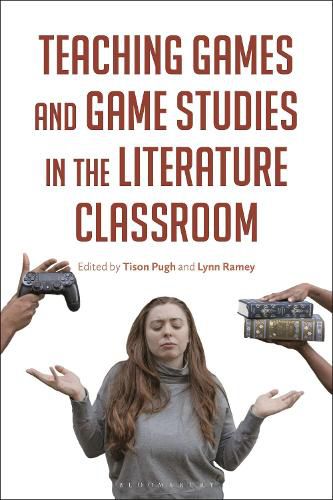Readings Newsletter
Become a Readings Member to make your shopping experience even easier.
Sign in or sign up for free!
You’re not far away from qualifying for FREE standard shipping within Australia
You’ve qualified for FREE standard shipping within Australia
The cart is loading…






Teaching Games and Game Studies in the Literature Classroom offers practical suggestions for educators looking to incorporate ludic media, ranging from novels to video games and from poems to board games, into their curricula. Across the globe, video games and interactive media have already been granted their own departments at numerous larger institutions and will increasingly fall under the purview of language and literature departments at smaller schools. This volume considers fundamental ways in which literature can be construed as a game and the benefits of such an approach. The contributors outline pedagogical strategies for integrating the study of video games with the study of literature and consider the intersections of identity and ideology as they relate to literature and ludology. They also address the benefits (and liabilities) of making the process of learning itself a game, an approach that is quickly gaining currency and increasing interest. Every chapter is grounded in theory but focuses on practical applications to develop students’ critical thinking skills and intercultural competence through both digital and analog gameful approaches.
$9.00 standard shipping within Australia
FREE standard shipping within Australia for orders over $100.00
Express & International shipping calculated at checkout
Teaching Games and Game Studies in the Literature Classroom offers practical suggestions for educators looking to incorporate ludic media, ranging from novels to video games and from poems to board games, into their curricula. Across the globe, video games and interactive media have already been granted their own departments at numerous larger institutions and will increasingly fall under the purview of language and literature departments at smaller schools. This volume considers fundamental ways in which literature can be construed as a game and the benefits of such an approach. The contributors outline pedagogical strategies for integrating the study of video games with the study of literature and consider the intersections of identity and ideology as they relate to literature and ludology. They also address the benefits (and liabilities) of making the process of learning itself a game, an approach that is quickly gaining currency and increasing interest. Every chapter is grounded in theory but focuses on practical applications to develop students’ critical thinking skills and intercultural competence through both digital and analog gameful approaches.